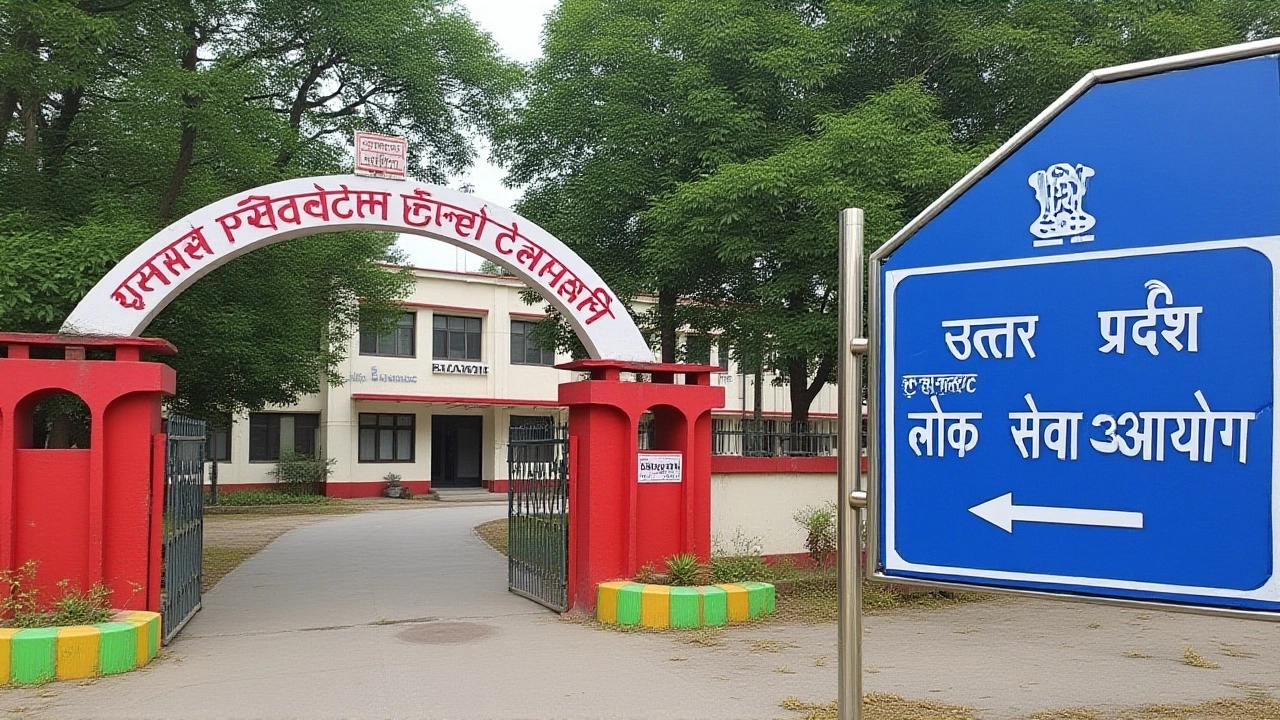
When Uttar Pradesh Public Service Commission (UPPSC) announced the Provincial Civil Services (PCS) Preliminary Examination 2025Uttar Pradesh, the state’s biggest recruitment drive for civil servants was supposed to kick off on March 17. Instead, a cascade of postponements, security overhauls, and a high‑court order turned the process into a months‑long saga that left more than 3.26 lakh candidates in limbo.
The PCS prelims is the gateway to around 200 coveted Group‑A posts in the Uttar Pradesh administration – ranging from district magistrates to senior executive officers. In a typical year, the commission opens registrations in February, caps applications by early April, and conducts the written test in a single morning slot across 1,435 centres in 75 districts.
For 2025, the commission listed 210 vacancies and set eligibility between 21 and 40 years of age (as of July 1, 2025). Candidates needed a bachelor’s degree, and fees varied: Rs 125 for General/OBC/EWS, Rs 65 for SC/ST/Ex‑Army, and Rs 25 for PwD aspirants.
What made this cycle different? UPPSC introduced a two‑tier training regime for invigilators – district‑level and centre‑level workshops – and rolled out an AI‑driven control room to monitor exam halls in real time.
The back‑and‑forth caused a ripple effect. Registration, initially set to close on March 31, was extended to April 2, 2025 on the commission’s portal (uppsc.up.nic.in). The correction window ran until April 9.
“We had to accommodate candidates who were still updating their documents,” explained a senior UPPSC officer (name withheld). “The repeated shifts were never part of the plan.”
Amid the scheduling chaos, a group of OBC candidates filed petitions alleging they were excluded from the Unreserved (UR) category despite higher marks than some General‑category aspirants. Justice Ajit Kumar of the Allahabad High Court took up the matter.
On September 28, 2025, the court ordered the postponement of the Mains exam for 609 Group‑A and Group‑B posts and directed UPPSC to redraw the preliminary merit list to include the eligible OBC candidates. The verdict read, “The respondent U.P. Public Service Commission shall re‑draw the merit list of the preliminary examination result of suitable candidates… and thereafter only the Commission shall hold the main examination on the basis of such revised preliminary examination result.”
This ruling forced the commission to pause the mains schedule, which had been slated for late September, and to reassess eligibility across the board.
To curb malpractice, the commission turned to technology. An AI‑enabled surveillance hub was set up in Lucknow, linking every exam centre via high‑definition CCTV feeds. In Lucknow, District Magistrate Surya Pal Gangwar confirmed that “static magistrates and sector magistrates have been deployed at all centres… All examination rooms are monitored by CCTV cameras, and the attendance of each student is recorded through biometrics.”
Biometric verification, combined with AI‑driven anomaly detection, aimed to flag any irregularities in real time. While officials hailed the move as a "new era of exam integrity," critics warned that the rapid tech rollout could overwhelm under‑trained staff.
For the 326,387 candidates who applied, the drawn‑out process meant financial strain – travel bookings, accommodation, and study material purchases – were often wasted. Many reported anxiety and uncertainty, especially those from remote districts who travelled to Prayagraj or Lucknow for the exam.
“I’ve been preparing for three years,” said Ramesh, a 29‑year‑old OBC aspirant from Varanasi. “Now I’m not sure if my scores will even count.”
Industry observers suggest that the UPPSC crisis could prompt a broader review of recruitment mechanics across Indian states. The combination of legal scrutiny, heightened security, and AI monitoring may become the new norm, but only if the commission can tighten its timelines and improve transparency.
Looking ahead, the commission has promised to release the revised merit list by early January 2026 and to schedule the Mains exam in the first quarter of the year. Still, the lingering question is whether the administrative overhauls will prevent another round of delays.
The Allahabad High Court order requires UPPSC to redraw the preliminary merit list, ensuring OBC candidates who scored higher than some General‑category aspirants are placed in the Unreserved slot. This could improve their chances of advancing to the Mains, but the revised list won’t be published until early 2026, prolonging uncertainty.
UPPSC deployed an AI‑powered control room, installed high‑definition CCTV at all 1,435 centres, and used biometric scanners to record attendance. In Prayagraj, static and sector magistrates were on site, and each exam hall was monitored in real time to detect any anomalies.
Following the court’s directive, UPPSC has pledged to publish the revised merit list by early January 2026 and aims to hold the Mains in the first quarter of that year, although a definitive date has not yet been announced.
Logistical challenges, protest actions in Prayagraj, and legal disputes over category allocations forced the commission to push the dates several times. The addition of new AI‑based monitoring systems also required extra setup time, contributing to the timeline shifts.
UPPSC officially notified 210 vacancies for the 2025 recruitment cycle, covering positions across district administration, finance, and public welfare departments.